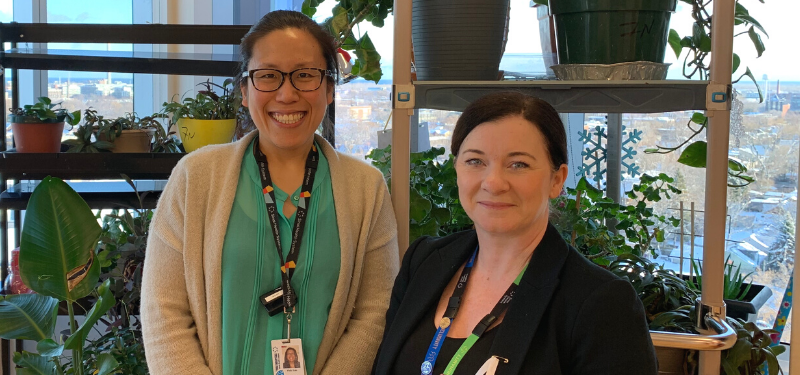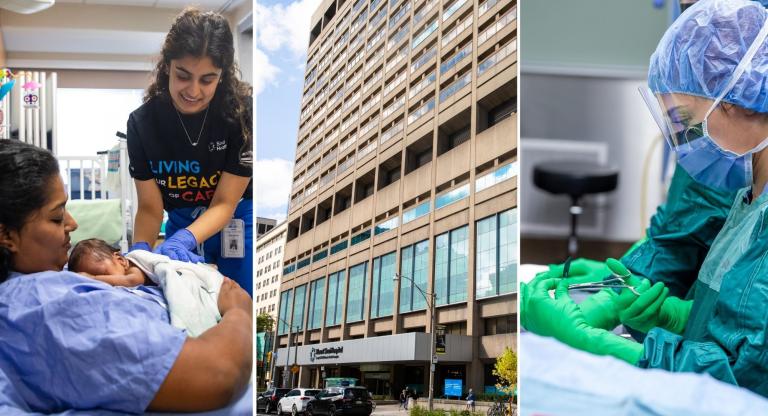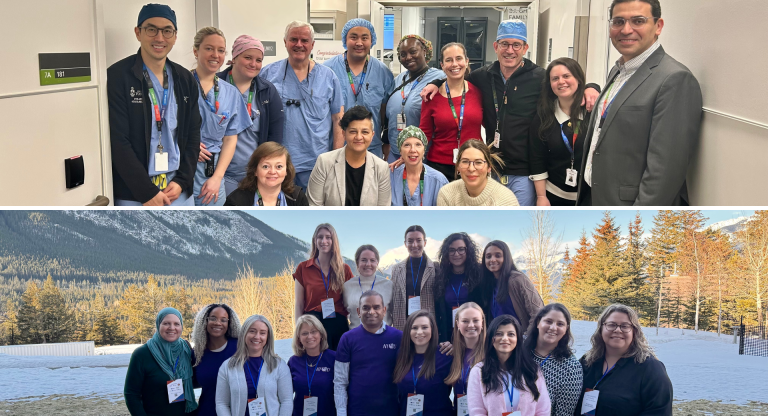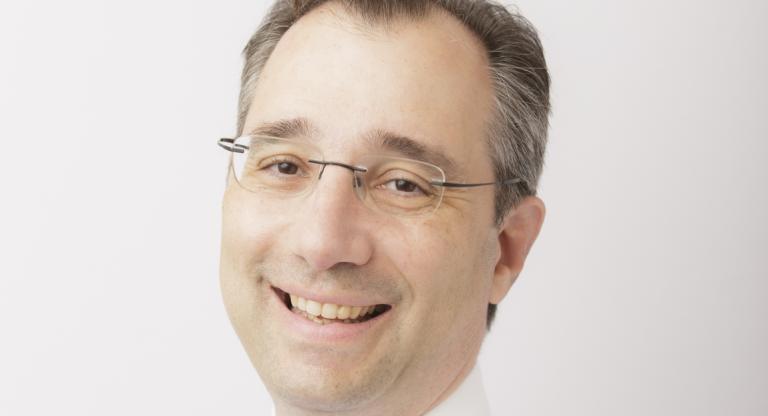Five awesome questions with our MAUVE coordinators

Volunteers can make all the difference when it comes to ensuring our older patients get the care they need when they are admitted to the hospital.
When older adults come to Sinai Health – either through a brief visit to the Emergency Department, admission to Mount Sinai’s specialized acute care for elders unit, or longer term rehabilitation at Bridgepoint – we make use of the valuable contributions of specially trained volunteers in our Maximizing Ageing Using Volunteer Engagement (MAUVE) program.
We spoke to Vicki Lau, Elder Life Specialist and MAUVE coordinator at Mount Sinai and Maureen Matheson, Communicative Disorders Assistant and MAUVE coordinator at Bridgepoint to learn more about this innovative program.
1. Can you share a bit of the history of MAUVE, how it was developed, and how/when it came to Bridgepoint?
The MAUVE program was originally started in 2010 at Mount Sinai Hospital. It was designed to provide specialized training for volunteers to engage with at-risk, frail older patients. This training focuses on ways to help older patients recover from acute illness more quickly with less complications, minimize their time in hospital, and allow them a greater opportunity to return home.
In 2011-2012, the Ben and Hilda Katz Foundation provided funding to hire a dedicated part-time recreational therapist to coordinate the volunteers and program’s activities. This Elder Life Specialist role expanded to full-time in 2017 to support the program.
MAUVE+ came to Bridgepoint in October 2018. We have tailored the program to suit our patients on the Transitional Care Unit with positive feedback from patients, caregivers staff and our MAUVE volunteers.
Across both campuses, there are about 90 volunteers who have a weekly shift in the areas the program supports.
2. What makes this program so successful?
The program’s success owes much to understanding that our older patients experience unique challenges in a hospital setting, and then working to address those challenges.
Everyone works to determine each individual patient’s needs. Some common activities that volunteers perform with patients could be anything from taking the patient for a walk outside, all the way to feeding them dinner.
Of course, we couldn’t be successful without the hard work of our volunteers, and the support offered by staff across units and various departments – especially Volunteer Resources and Geriatrics.
3. What makes a good MAUVE volunteer?
A good volunteer thinks less of what they can get from the experience but more of what they can contribute. MAUVE volunteers exhibit patience, openness, flexibility, and consistently meet patients at their level. By providing older patients with companionship and additional functional support during their stays, MAUVE volunteers take (sometimes) small steps that make a very big difference for our patients.
4. How do MAUVE volunteers improve the way we deliver care at Sinai Health?
MAUVE volunteers enhance the work we do and the care we provide. For patients who do not have family available, volunteers essentially help to fill that role and support those patients. This is critical in a hospital’s fast-paced environment, which can be challenging for older adults to navigate. Nurses in particular have reported that MAUVE volunteers have freed up some of their time, allowing them to more efficiently provide direct care.
5. Where do you see the program going in the future?
We are currently looking to expand the program to Bridgepoint’s Neurological Care Unit.
Hopefully the program continues to grow to include more staff support so we’re able to expand. With the support of Geriatrics, we’ve been able to conduct research and collect results to show the impact we’re making for our patients, and our care teams.
We also hope to build more awareness. While MAUVE is well known to many, there is still room to share our great resources with Sinai Health, as well as patients and families who might not be aware of this program, and the important interventions that volunteers are able to provide in supporting the prevention and treatment of delirium and functional decline.
To volunteer with the MAUVE program at Mount Sinai, please contact Mount Sinai Hospital’s Volunteer Services by phone at 416-586-4800 ext. 8200 or by email at [email protected]. To volunteer at Bridgepoint, call 416-461-8252 ext. 2430 or by email at [email protected]
We are so grateful to the volunteers we work with every day – they are really making a difference for our patients and we see examples every day of the ways they go the extra mile.












